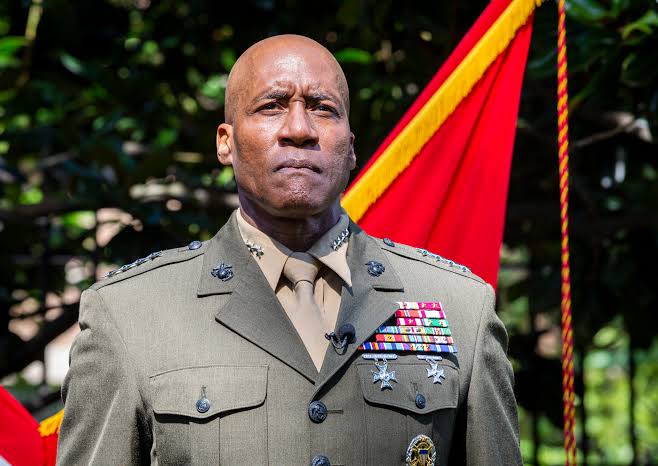The Commander of United States Africa Command (AFRICOM), General Michael Langley, has raised alarms over the growing efforts of extremist groups and terrorists in the Sahel region seeking to expand their operations to West Africa’s coastline.
In a press conference held at the African Chiefs of Defence Conference in Nairobi, Kenya, Langley described the recent surge in terrorist activity across Nigeria, the Sahel, and the Lake Chad Basin as deeply concerning, warning that access to West African coasts would significantly enhance the terrorists’ capacity for smuggling, arms trafficking, and destabilization.
News360 Info reports that Langley pointed to the worsening situation in the Sahel, which includes Mali, Burkina Faso, and Niger, where terrorist groups linked to ISIS and Al-Qaeda have entrenched themselves.
He warned that the threat extends beyond the region, affecting countries on the West African coastline.
“Attacks are resurging in the Lake Chad region as well, and extremist groups are growing more aggressive. The recent attacks in Nigeria and across the Sahel are deeply concerning,” Langley said.
He added, “One of the terrorists’ new objectives is gaining access to West African coasts. If they secure access to the coastline, they can finance their operations through smuggling, human trafficking, and arms trading. This not only puts African nations at risk but also raises the chance of threats reaching US shores.”
Despite challenges, Langley expressed confidence in Africa’s growing capacity to confront these security threats. He commended the efforts of countries like Ghana, Côte d’Ivoire, and Benin, which have worked hard to prevent terrorist infiltration on their northern borders.
Langley reaffirmed the US’s commitment to counterterrorism efforts and working with African nations, even in light of the partial withdrawal of US forces from the continent.
“We respect national sovereignty and only go where we’re asked, as long as it aligns with U.S. national security objectives,” Langley stated.
Langley also praised African military forces for taking an active role in regional security. “African militaries are not waiting to be saved. They are taking on security challenges head-on, leveraging opportunities for stability and prosperity,” he said.
He highlighted AFRICOM’s collaboration with Nigeria, particularly in combating Boko Haram and ISIS West Africa. He also noted AFRICOM’s increasing support for Somalia, where US forces have conducted over 25 airstrikes this year to target jihadist groups, twice the number carried out in the previous year.
In a bid to address terrorism at its roots, Langley emphasised that AFRICOM’s mission goes beyond military assistance. He said, “We are helping build stability, not just military capacity. AFRICOM focuses on intelligence sharing, capacity building, and addressing the root causes of terrorism.”
Langley concluded by stressing that AFRICOM’s long-term goal is to empower African nations to solve their security challenges independently.
He added, “AFRICOM is focused on building strong, capable military and security forces. Our partnership is summed up in three words: peace through strength. Strong partnerships are the best representation of that thought because we’re always stronger when we stand together.”
AFRICOM’s strategic emphasis on partnership aims to strengthen African military capabilities and foster stability, creating a foundation for peace and prosperity that benefits both African nations and the US.






